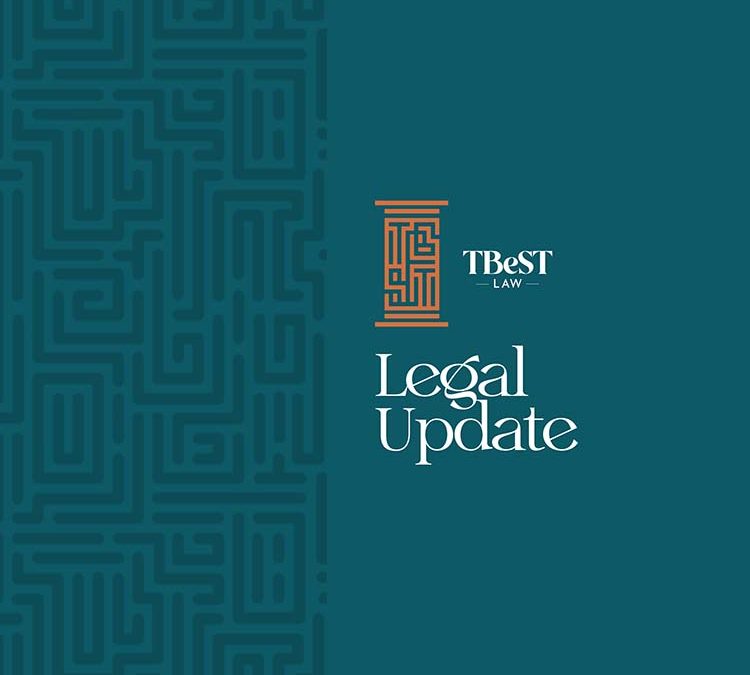A Revival of an Old Ethiopian Transfer Pricing Directive : How does the Renumbered TP Directive affect Taxpayers?
Dr. Taddese Lencho
The dormant Transfer Pricing (TP) Directive of 2015 was recently renumbered and reissued by the Ethiopian Ministry of Finance as “Directive to Provide Rules on Transfer Pricing Directive No. 981/2024”. The renaming has more to do with the special procedural requirements of laws issued after the TP Directive of 2015 than with the substance of the TP Directive itself. Apart from references to tax laws issued after the TP Directive of 2015, few changes are made to the Transfer Pricing Directive of 2015.
The renumbering is an attempt to bring back to life the dormant TP Directive of 2015 and give proper notice to taxpayers to henceforward comply with TP rules in their record-keeping and tax filing duties. It is also a gentle reminder to the Tax Authorities themselves as the Authorities were also partly responsible for the dormancy of the TP Directive of 2015. The Ethiopian Ministry of Revenues has already made it clear last year that it would start implementing the TP rules from the beginning of this tax year, and this renaming is another clear signal that the Government is serious about the implementation of TP rules and regulations. The renumbered Directive states that it would become effective from the date of its registration by the Ministry of Justice and uploading on the Website of the Ministry of Finance. By pushing the effective date forward to the year 2023/2024 instead of 2015, the renumbered Directive relieves many taxpayers from having to worry about compliance with the TP Directive from the year 2015.
How does the renumbered Directive affect taxpayers in the immediate future?
The Directive imposes an active, self-assessment obligation upon taxpayers to maintain contemporaneous documentation to justify that their related party transactions are consistent with arm’s length principles. In addition, the onus is on taxpayers to show that the transfer pricing method they have applied is the “most appropriate pricing method” taking the facts and circumstances into account. The “most appropriate pricing method” is not an easy one to pick and taxpayers may find themselves caught wrong-footed if they select a pricing method that is rejected by the Tax Authorities.
Now that the TP Directive is renumbered and reissued with a new effective date, taxpayers must expect increasing scrutiny of their related party transactions from the tax authorities. Under the Directive, contemporaneous TP documentation should be in place at the statutory tax return filing date and made available to the Tax Authorities within 45 days of the written request made by the Tax Authorities. Failure to maintain contemporaneous documentation or failure to submit documents when requested by the Tax Authorities carries a penalty of 20 percent of the tax payable, or where no tax is payable, 20,000 ETB for each tax year, and failure to provide details of the transactions with related persons in transfer pricing documentation carries a penalty of 100,000 ETB.
The Tax Authorities are likely to start applying the TP Directive from the easily enforceable provision of applying penalties against taxpayers who are unable to maintain contemporaneous TP documentation or fail to submit the required documentation when requested by the Tax Authorities. Apart from the penalties, failure to maintain contemporaneous documentation along with the justification of the most appropriate TP method is likely to give the tax authority auditors the excuse to reject all related party expenses, and in some cases, might even be the excuse for them to impute hidden income into such related party transactions.
For multinational companies already going through the regimen of transfer pricing in other countries, compliance with the TP Directive is going to require a comparatively simple process of adapting TP documentation by extending headquarter or group TP documentation to their subsidiaries or branches in Ethiopia. Many of the multinationals operating in the Ethiopian market are going to welcome the announcement of the application of TP rules as some of them have been calling for substantive TP analysis only to be received by cold shoulders from the Tax Authorities.
Questions about the Effectiveness of the Renumbered TP Directive
The big question hanging over the renumbered TP Directive is whether the Tax Authorities will examine and analyze related party transactions strictly in accordance with the TP rules laid down in the Directive. TP analysis is not easy, requiring a rigorous analysis of the characteristics of property exchanged and services rendered, the functions of various entities involved, the terms and conditions of contractual relationships, the economic and market conditions surrounding the transactions, and the business strategies pursued by the parties to the transactions. TP analysis requires the expert eye of a lawyer to understand and interpret the different types of contracts, of an economist to analyze the different markets involved and risks assumed by the parties, and of an accountant to examine the books and records of the parties and to reconcile the books and accounts and then make the necessary adjustments.
Individual tax auditors in Ethiopia may not have the knowledge and experience yet to review and make judgements about complex relationships and transactions, particularly when cross-border transactions and entities are involved. A special unit has already been established within the Ministry of Revenues to oversee and build the capacity of Ethiopian Tax Administration in TP documentation review and analysis. It is hoped that transfer pricing experts from that unit will oversee and handle the review of related party transactions before any conclusion is made whether there is transfer pricing at all, and if so, whether the transfer pricing method adopted by a given taxpayer is consistent with the arm’s length rules. Even then, it remains to be a concern that a limited number of transfer pricing experts within the Ethiopian tax Administration will not be able to cope with the sheer volume of transfer pricing cases in individual taxpayer audits.
The renumbered Directive might face the fate of the TP Directive of 2015 if the parallel bowdlerized version of TP treatment persists in Ethiopian Tax Administration, pushing the renumbered TP Directive into dormancy again. In the past, the Tax Authority auditors did not see the need to apply the TP Directive because they had a more powerful and easier test at their disposal, which was to reject related party expenses (particularly the cross-border ones) as simply and flatly “unnecessary,” or to apply to related party transactions some arbitrarily selected comparable market prices culled from presumptive tables designed for small and micro-businesses. It is safe to bet that old habits die hard in this regard, and the old practice may persist, undermining any efforts to institutionalize internationally recognized transfer pricing standards in the Ethiopian tax administration.
Transfer Pricing and the Tax Avoidance Test
Another major concern is the application of transfer pricing to all related party transactions. TP analysis is not done for its mathematical or analytical beauty, but for making adjustments on related party transactions so that more tax that should have been paid is paid to the Tax Authorities as a consequence of TP adjustments. There has been a tendency in Ethiopian tax practice in the past to view all related party transactions as suspect and reverse all related party transactions simply because they are related party transactions. It is not often acknowledged that transfer pricing results in tax advantages (known as “tax arbitrage”) as a result of differences in tax rates and privileges applicable to different entities or taxpayers in multiple jurisdictions or single jurisdictions. Where these arbitrage opportunities do not exist, rejection of prices among related party entities and application of the arm’s length prices on theoretical grounds may result in levying higher tax burdens on related parties and groups of companies simply because they are related parties. It must be stressed that it is not wrong for related party entities to favor related parties for commercial reasons; they are related for a reason. What is wrong is to use these relationships to reduce overall tax liabilities.
In a country like Ethiopia where the notion of “fiscal unity” is not recognized and where all related parties in Ethiopia are not audited at the same time, the net effect of the mechanical application of TP rules to related parties operating all in Ethiopia and subject to the same corporate tax regime is to apply a special penalty, an excise tax on relationships. In the interest of maintaining an equitable tax system for all taxpayers (related as well as unrelated), it is incumbent upon the Tax Authorities to first check if tax avoidance is even a possibility before arm’s length prices are applied.


